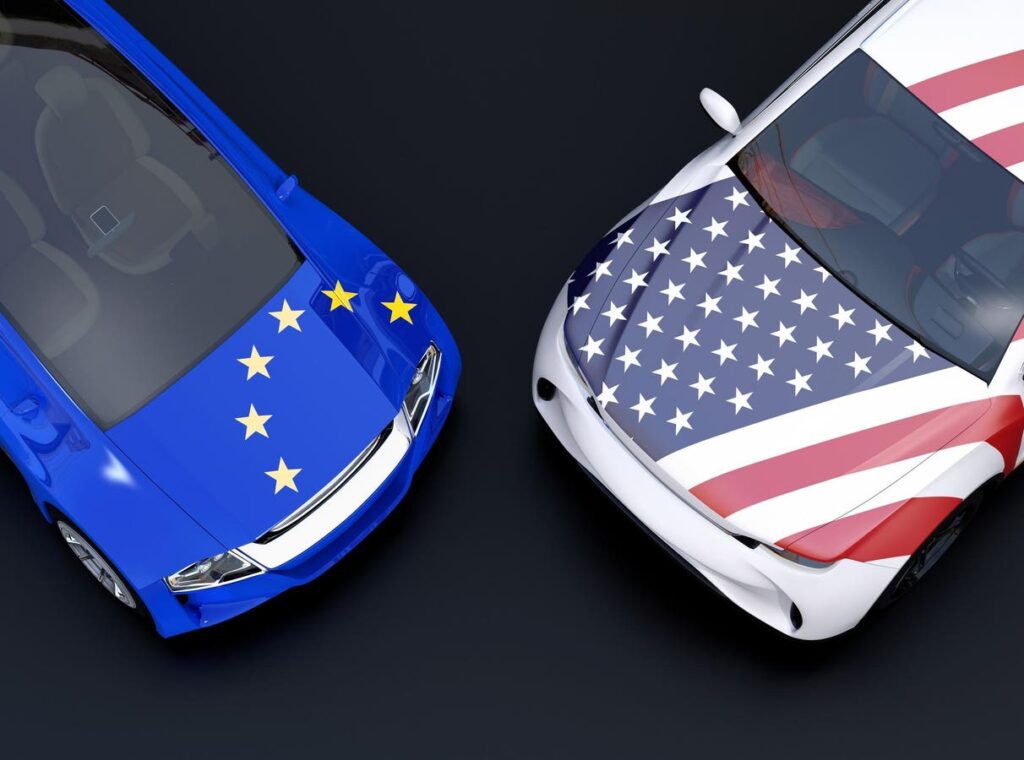Shares of most of Europe’s biggest automakers rallied Tuesday after diving the previous day when they reacted to President Donald Trump’s long-awaited campaign to use tariffs to restore fairness in global trading relations.
Calm may have returned to auto shares, but when it’s Europe’s turn to face the tariff question the added issue of non-tariff barriers might quickly turn nasty.
President Trump’s campaign started with Canada and Mexico and this set off tremors across the world’s stock markets. But the quick reaction of Canada and Mexico to offer concessions calmed investors’ nerves Tuesday, after Trump suspended his threat of 25% tariffs, agreeing to a 30-day pause in return for concessions on border and crime enforcement.
Volkswagen ($98.1 +1.03%) and Stellantis (€12.63 +2.04%) rallied, Mercedes (€57.17 off 0.07%) and BMW (€77.36 off 0.88%) steadied, while Renault’s shares fell 0.54% to about €50 after a relatively long period of advancement based on its improved outlook for electric vehicles sales.
Investment bank UBS said calm returned to stock markets as the immediate deadline was replaced by the need to wait for a month before the next episode.
“This might not be the last surprise in the tariff saga, which is why we expect continued volatility on the topic in the coming weeks and months,” UBS said in a research note.
At the weekend President Trump said he would put tariffs on European-made vehicles. Trump also claimed the U.S. trade deficit with the EU was more than $300 billion a year.
“Such tariffs would not cause as much potential supply chain disruption and inflationary pressure on U.S. consumers as a tariff on Mexican products would do,” according to UBS.
But agreeing a deal with Europe might not be easy, according to former U.S. ambassador to the EU Gordon Sondland. The case for an adjustment of the tariff on European autos in the U.S. is clear. EU autos carry a tariff of 2.5% in the U.S., while Europe charges U.S. automakers 10%.
Sondland said the EU also restricts U.S. sales by non-tariff measures insisting on different safety standards. Sales of food and wine are also restricted by unnecessary regulation.
“When EU citizens come to the U.S. on vacation or to live here temporarily, they don’t bring their own cars or their own food. They are perfectly safe eating our food and driving our cars and it’s high time the EU treated our products that way,” Sondland said in an interview Monday with the BBC’s NewsNight program.
“If we sell you a vegetable or a car or a product if it’s safe to use in the U.S. it should deemed to be safe to use in the EU,” Sondland said.
He was asked to sum up Trump’s plan for Europe and the world. The U.S. is tired of talking about impediments to its foreign trade and wants action now, he said.
Sondland was ambassador to the EU during Trump’s first term.
Read the full article here


